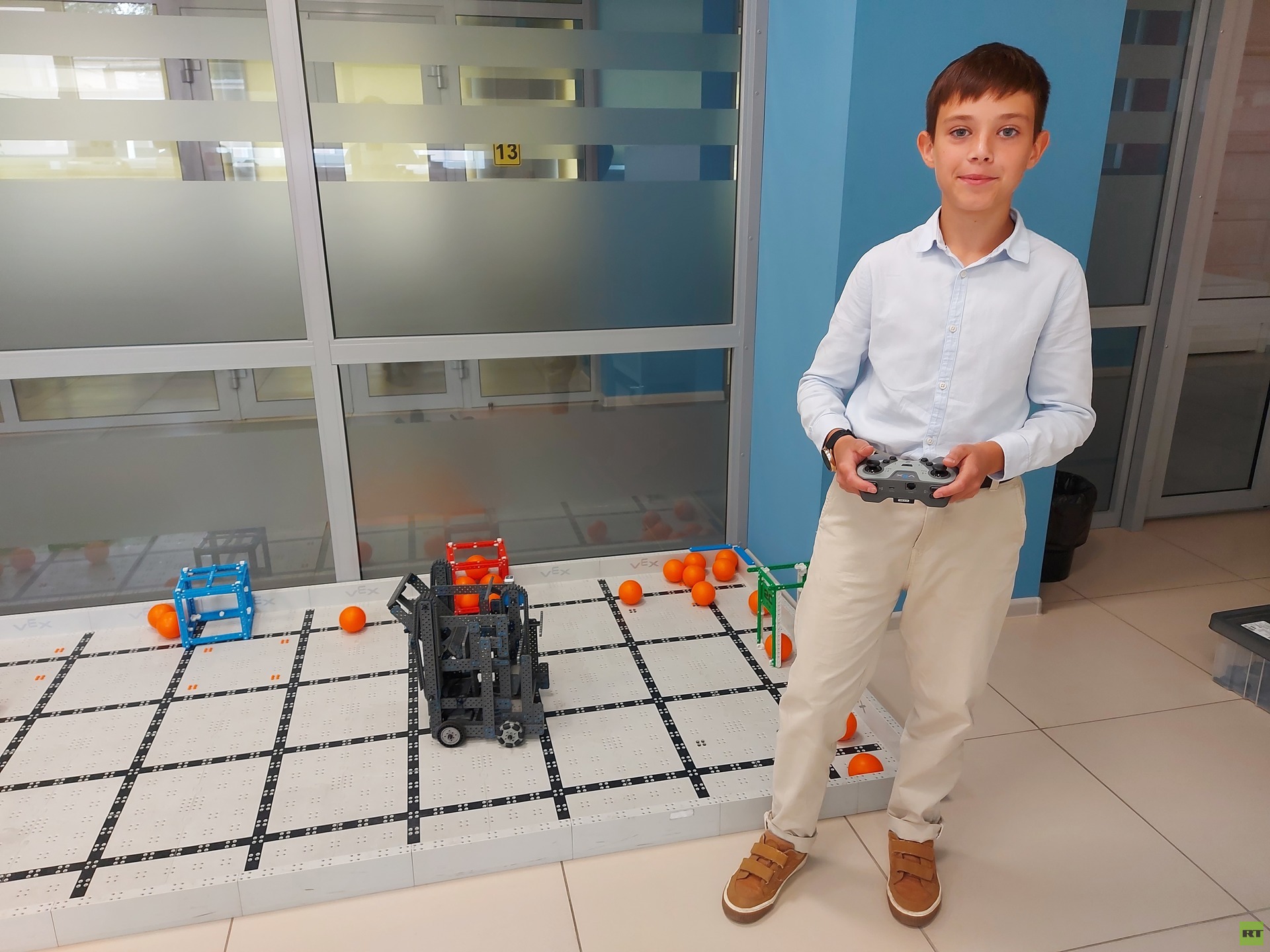Russian schoolchildren successfully performed at major international robotics competitions, which were held in Malaysia at the end of June.
The Russians took first places in two main nominations.
Denis Chumichkin won the CAD design of a robot (age category 9-12 years old), and Stepan Orlov won in programming a virtual robot (category 13-15 years old).
Milana Roldugina took third place in the virtual robot programming discipline, but in the 9-12 year category.
Two other team members, Kirill Korablin and Svetlana Tushova, entered the top 10 among all participants.
All five of them were trained in the center of additional education in the Lipetsk region (Skills Center).
Center for Continuing Education Skills Center
RT
The teacher of the "Mobile Robotics" direction Margarita Tsyganova told RT that for her students this was the first experience of participating in international tournaments.
“We won regional, Russian competitions“ Big Challenges.
Sirius ”,“ WorldSkills Russia Junior ”,“ Step into the Future ”, etc. It became interesting to try to rise higher.
In April of this year, they applied for the International Robotics Challenge - they took part in the qualifying stage.
In total, such applications were submitted by 300 participants from 24 countries.
Including Australia, France, Singapore.
And in May they received the answer that they had passed and were admitted directly to the final stage, - said Tsyganova.
- The tournament was hosted by Malaysia.
Alas, due to the pandemic, no one went anywhere - everything went online in real time.
However, this did not simplify the task for the contestants ”.
Depending on the nomination, the participant was asked to complete up to three tasks.
“In the CAD design category, I needed to design and assemble a robot capable of performing certain functions,” 12-year-old Denis Chumichkin explained to RT.
Actually, he immediately demonstrated the device that brought him victory: something made of plastic, reminiscent of a toy electric car.
Denis picks up a remote control with a joystick and sets the machine in motion.
The robot can ride, pick up plastic balls from the floor and place them in places.
“Here we have a tracked transmission, here is a controller,” explains Denis.
The robot had to be designed and built in advance.
And directly during the competition - to present it in English.
“If someone else made a robot for a child, it would definitely come to light - only the author would be able to clearly answer all the questions,” Margarita Tsyganova predicted the question.
Chumichkin Denis, nomination CAD design of a robot 9-12 years old
RT
The robot "assembled" by 15-year-old Stepan Orlov is virtual.
The author demonstrates it on a laptop monitor.
“There was a task to program a robot that would distinguish colors on the screen - to carry chips of different colors into separate squares,” Stepan nods at the collector-sorter running across the screen. - This task was sent to the judges for verification. And then in May we were informed that we entered the top 10 of the world - we will participate in the final selection. At the next stage, we were given our own code, but some errors were added to it. It was necessary to find this error in five minutes, fix and demonstrate the essence of the error. Then it was necessary to read the text of the new assignment in English, to understand it in three minutes. Perhaps ask some questions. And in the remaining seven minutes to complete - write the code, demonstrate the essence of its work. And then answer the questions of the judges. All this is done in the most limited time mode, ”explains Stepan.
Margarita Tsyganova admits that she herself would not have coped with the seven-minute task that her student had successfully completed.
“It is very difficult to find an error in the code, but Stepan is great - he found and explained his point of view to the judges.
It was very pleasant when the judges noted Stepan - he moved farther in solving the problem than anyone else, ”says the teacher.
The jury summed up the results of the competition on June 28.
Diplomas and prizes will be sent to the winners later.
Orlov Stepan and teacher of the Center Margarita Tsyganova, nomination for programming a virtual robot 13-15 years old
RT
Stepan and Denis have been studying in the robotics section since 2015: from the age of 9 and 6, respectively. And today groups for preschool children work in the center. Now Stepan is working on a new robot, which, apparently, will be presented at the next competition. “We are starting to develop machine vision,” he said. "This is for the robot to be able to identify objects, such as a traffic light."

